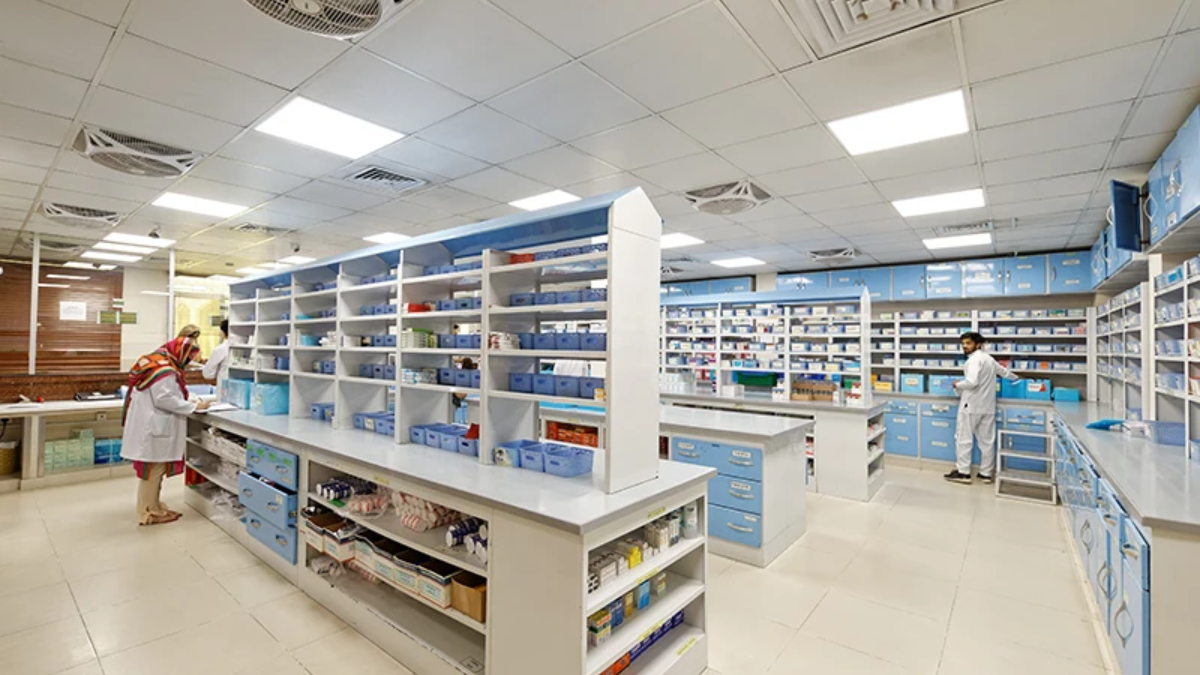Hospital pharmacies are integral to patient care, ensuring safe and effective medication management. Pharmacists in hospitals work closely with doctors, nurses, and patients to provide the right drugs in correct dosages. Beyond dispensing medicines, hospital pharmacies monitor drug interactions, educate patients, and maintain compliance with legal and safety standards. Efficient pharmacy services improve treatment outcomes and reduce medication-related risks.
Importance of Hospital Pharmacy Services
- Safe Medication Use: Ensures correct prescription and dosage for each patient.
- Prevents Drug Interactions: Identifies and manages potential adverse interactions.
- Supports Treatment Plans: Works alongside physicians to optimize therapy.
- Educates Patients: Informs patients about proper medication usage and side effects.
- Inventory Management: Maintains availability of essential drugs and emergency medications.
Key Functions of Hospital Pharmacies
1. Dispensing Medications
- Provides prescribed drugs accurately and on time.
- Ensures dosage, route, and frequency are followed correctly.
2. Clinical Pharmacy Services
- Reviews prescriptions to prevent errors.
- Provides recommendations on drug selection and therapy optimization.
3. Medication Counseling
- Educates patients on how and when to take medications.
- Explains side effects, precautions, and storage instructions.
4. Drug Monitoring
- Monitors patients for adverse drug reactions.
- Adjusts dosages based on lab results and patient condition.
5. Inventory and Supply Management
- Ensures critical drugs are always available.
- Manages procurement, storage, and expiration of medications.
6. Research and Development Support
- Provides drugs for clinical trials.
- Assists in studies on drug efficacy and safety.
Role of Hospital Pharmacists
- Clinical Pharmacists: Work with doctors to optimize drug therapy.
- Dispensing Pharmacists: Ensure accurate delivery of medications to patients.
- Pharmacy Technicians: Assist in preparation, labeling, and inventory management.
- Pharmacy Administrators: Oversee operations, compliance, and procurement.
- Educators: Train staff and patients on medication safety.
Technology in Hospital Pharmacy Services
- Automated Dispensing Systems: Reduce manual errors and improve efficiency.
- Electronic Prescription Systems: Ensure accurate and legible prescriptions.
- Barcode Medication Administration: Confirms the right drug and dosage for each patient.
- Digital Inventory Management: Tracks stock levels and expiration dates.
- Telepharmacy: Remote consultation and prescription verification for hospitals in underserved areas.
Challenges in Hospital Pharmacy Services
- Managing high patient volumes and urgent medication needs.
- Drug shortages and supply chain disruptions.
- Preventing medication errors in busy hospital environments.
- Training staff to use advanced pharmacy technology.
- Managing cost while providing quality medication services.
Future of Hospital Pharmacy Services
- Personalized Medicine: Pharmacogenomics to tailor medications based on genetics.
- AI-Assisted Prescriptions: Reduce errors and optimize therapy.
- Integration with EHR: Seamless communication between pharmacy and clinical teams.
- Automated and Robotic Dispensing: Faster and safer medication delivery.
- Global Telepharmacy Networks: Support remote hospitals with expert consultation.
FAQs on Hospital Pharmacy Services
1. What is the role of a hospital pharmacy?
To provide safe, effective, and timely medications while supporting patient care and therapy management.
2. Who works in a hospital pharmacy?
Clinical pharmacists, dispensing pharmacists, pharmacy technicians, administrators, and educators.
3. How do hospital pharmacies prevent medication errors?
Through prescription review, barcode systems, automation, and patient counseling.
4. What is clinical pharmacy?
A service where pharmacists collaborate with doctors to optimize drug therapy for patients.
5. Can patients get medication counseling in hospitals?
Yes, pharmacists educate patients about proper use, side effects, and precautions.
6. How does technology help hospital pharmacies?
Automated dispensing, electronic prescriptions, barcode verification, digital inventory, and telepharmacy enhance accuracy and efficiency.
7. What is the importance of inventory management in hospitals?
Ensures availability of essential drugs and prevents shortages or expired medications.
8. Can hospital pharmacies support research?
Yes, they provide drugs for clinical trials and assist in studies on drug efficacy.
9. How do hospital pharmacies contribute to patient safety?
By preventing drug interactions, monitoring therapy, and ensuring correct dosages.
10. What is the future of hospital pharmacy services?
Personalized medicine, AI-assisted prescriptions, automated dispensing, and telepharmacy networks.

